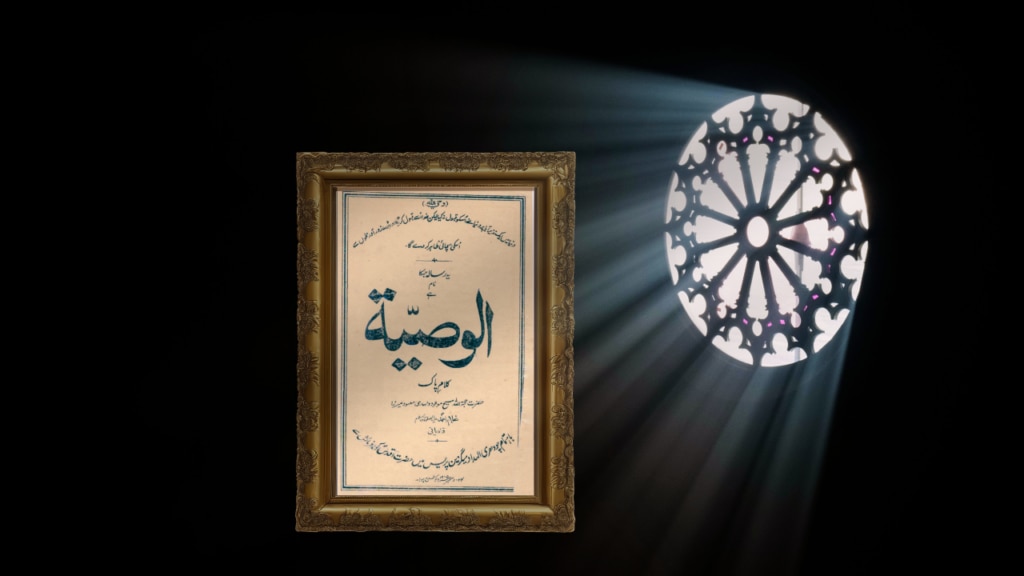Ayesha Mahmood Malik, UK

Verse 46 of Surah al-Kahf in the Holy Quran presents moving imagery of the life of this world, underscoring its fleeting and temporal nature. In the verse, man’s life on earth is compared to water pouring forth from the sky and mixing with vegetation, which goes on to bear fruits, but ultimately being reduced to “broken pieces of grass which the winds scatter”. Notwithstanding any zenith we reach in our earthly existence, it is a soul-wrenching reminder that our lives will ultimately suffer decline and be reduced to nothing.
Yet, that could surely not be the purpose of our lives. Allah would not have thought to create life if broken pieces of grass were to be its fateful end. What the Quran seeks to explain in this verse is the import of leading a purely earthly existence from a transcendent point of view, providing no spiritual sustenance to our souls, such that our bodies have merely served as physical habitats for our time on earth, which will be returned to the earth after we are gone. Allah’s purpose for our lives is far greater – He repeatedly reminds us that this life is but “a sport and a pastime”, so be mindful of making provision for the life to come, which is Eternal. Feeding your souls with spiritual succour will create lives of purpose and enable you to plant enduring spiritual trees, the legacies whereof will endure long after we have gone.
Islam tells us that the purpose of our life rests on two jurisprudential pillars: the rights of God and the rights of His creation. Engendering these two qualities in one’s person can lead him to “find” his purpose of birth but still keep him away from truly “fulfilling” it until he can also achieve what the Promised Messiahas refers to as khatima bil khair – a good ending.
In his concluding address at the Jalsa Salana Qadian in 1904, the Promised Messiahas implored his budding community of followers that life on this earth is extremely short and that they should hasten to achieve its true purpose by striving for khatima bil khair. He warned that the stages of man’s physical development are such that as he progresses from birth to adulthood to old age, he remains in a spiritual state of slumber, partly due to lack of knowledge borne out of physical limitations and partly due to nafs-e-ammarah (the self that incites to evil) staying close and launching attacks on his soul in various forms. To overcome these challenges, the Promised Messiahas expounded three ways of achieving khatima bil khair: by constantly striving to do righteous deeds, by beseeching God through devoted acts of worship and true prayer, and by keeping company with the righteous.
He proclaimed that he saw a world wherein souls were empty and only bodies remained, and that Allah wished to reinstate righteousness into the world via this Jamaat. He hoped that his community of followers would not just remain focused on this world but would frequently turn their attention to the fact that they must leave this temporal abode one day.
One year later, the Promised Messiahas, under Divine guidance, announced that another extremely potent way of winning Allah’s pleasure and achieving khatima bil khair was the scheme of Al-Wasiyyat – a scheme in fulfilling a great Quranic prophecy contained in Surah al-Yasin establishes the Bahishti Maqbarah or Heavenly Graveyard, wherein such righteous servants of faith shall be buried who had strived to attain moral excellences and devoted at least 1/10th of all their total wealth to the cause of Islam in their lifetime.
He made the announcement in Risala Al-Wasiyyat or The Will, wherein he informed his community that the time of his demise was near, and that in so far as he was the first manifestation of Allah’s power, with his departure will come His second manifestation, which will endure till the end of time:
“I came from God as a Manifestation of Divine Providence, and I am a personification of His Power. And after I am gone there will be some other persons who will be the manifestation of the second Power [of God].” (The Will, p. 8)
Thus today, as Khilafat-e-Ahmadiyya turns 117, these words will resonate and linger in the hearts and minds of Ahmadis worldwide. As we look back and reflect, it is imperative to remember that this blessing was vouchsafed until the end of days to a righteous body of believers – those who strive to achieve spiritual transformation of their souls, stand firm on the paths of taqwa and offer financial sacrifice. Khilafat and the Al-Wasiyyat scheme thereby share an inextricable bond, where the Khalifa is the spiritual custodian of Al-Wasiyyat, ensuring its continuity and financial integrity.
The Promised Messiahas had wished that as his community of followers traversed this ephemeral passage of life on earth, they would keep death as a very close companion and not fall in love with the pleasures of this world. His advice was to undertake a daily interrogation of one’s soul and ask if that day has brought them any closer in achieving their purpose of birth and obtaining khatima bil khair. It was by doing so that he decreed the Jamaat would be ensuring the preservation of the institution of Khilafat.

